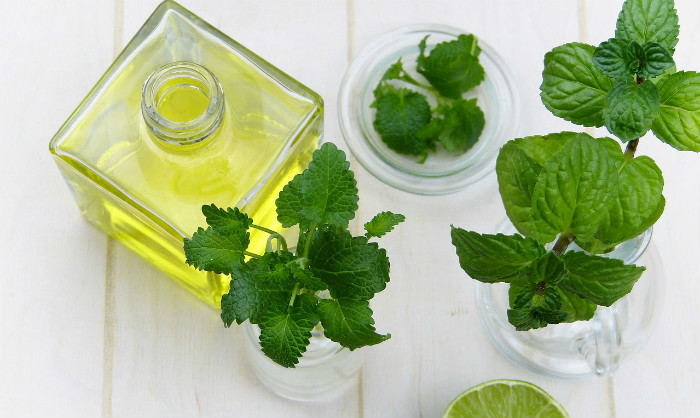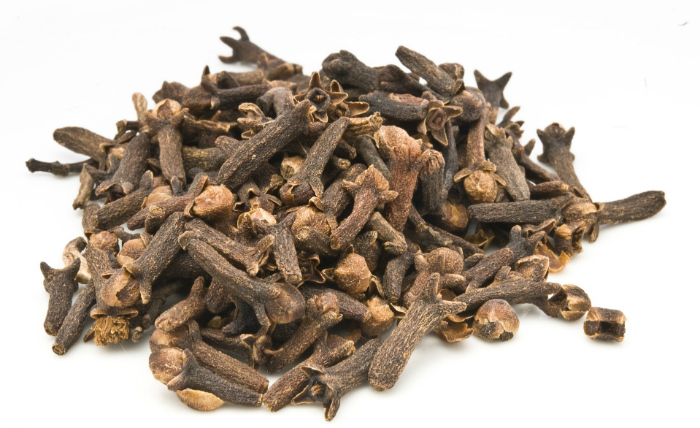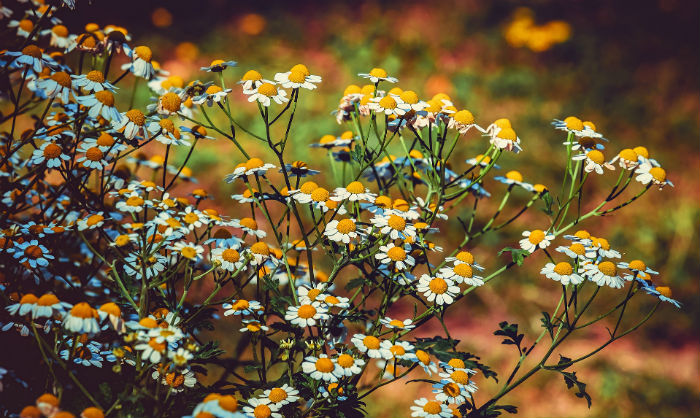Table of Contents
Ants are everywhere – in our yard, our garage, our patio, and even in our kitchen. These tiny insects seem to be harmless and non-invasive at first. However, as their colony grows, ants will start to cause damages and sanitary issues. So to help you get rid of the crawlers, we came up with this list of 20 herbs that repel ants.
These safe and natural solutions can be found on the stack of herb jars on your kitchen. With just a little creativity, you no longer have to resort to insecticides. Aside from that, you’ll give your home a nice scent.
1. Lemongrass
As the source of citronella oil which is used to repel various insects, there’s no doubt that lemongrass will be powerful against the ants. The strong scent of crushed lemongrass is effective in blocking the senses of ants, causing them to lose track and to look for another harborage.
Also, the acidic properties of lemongrass extracts are deadly for ants. You can boil lemongrass and let it sit overnight. Then the next morning, transfer the solution to a spray bottle and spritz it all over the affected place. Moreover, you can blend it with the other herbs here to boost its repelling effect.
If you don’t have any lemongrass, you can purchase lemongrass oil instead. This is a potent insect killer that’s safe to use indoors. Just dilute a few drops of the oil in water to make an instant spray.

2. Basil
Basil leaves aren’t just an aromatic and delicious herb for savory meals. It’s also one of the best herbs that repel ants, asparagus beetles, flies, and mosquitoes. In fact, planting it in your garden will help in reducing the presence of the mentioned insects.
If you’re planting basil, you should know that it requires more water on hot climates. Other than that, it’s a resilient plant that will give you an endless supply of natural repellent.
Anyway, you can simply purchase basil leaves in stores to skip the hassle. Placing a few leaves on the spots where ants enter your house is a great way to drive them off.
Make sure that you crush, cut, and tear the leaves to expose its extracts. This will enhance the scent of the herb, making it more effective in warding off ants.
You can also place a bunch of chopped basil on your countertop to prevent the ants from climbing into your food.
3. Lavender
As one of the most loved herb, lavender has earned its reputation in aromatherapy and insect repelling. This mellow-scented flower also has the aroma that ants find repulsive. Planting it around your garden will be a big help to keep the ants away from other plants.
However, lavender needs enough airflow to thrive. Also, it grows better in a hot and humid climate with direct exposure to sunlight.
To keep ants out of your home, just pick a few lavender flowers, dry it up, and place it on the areas where the insects hide. You can also use some on your closet to deodorize it and to keep bugs away.
For those who are planning to plant lavender indoors, you have better chances with French lavender. You can use a small fan to mimic the natural breeze.
Just be careful since lavender can be toxic to dogs if taken in large amounts.
4. Rosemary
Rosemary may not be as aromatic as mint or lavender, but it still remains as one of the most potent herbs that repel ants. It’s also effective in repelling mosquitoes, flies, cabbage moths, and beetles. By crushing some leaves, you can unleash the strong aroma of rosemary. Aside from using it as an ant repellent, it also gives off a nice scent on your home.
If planted outdoors, rosemary can mask the scent of other edible plants to shield them from damaging insects. In addition, if you’re planting rosemary, make sure that you have a spot that’s exposed directly to sunlight. This herb needs more light than others. Also, you shouldn’t overdo the watering so the roots won’t be too wet and kill the plant.
Nevertheless, you can purchase a supply of rosemary from the stores. Just crush with a mortar and pestle, sprinkle it around, and wait until the ants are gone.
5. Thyme
Another one of the herbs that repel ants on our kitchen is thyme. You can plant it or use its leaves to repel a variety of insects, including ants.
The thing with thyme is it doesn’t need too much sunlight – a big surprise, considering that it’s an evergreen. However, you should water it just enough so the roots of the thyme won’t get soggy.
Since it thrives on indirect sunlight, you can plant thyme on ceramic pots and place it indoors. You can put it on your countertop, your window, living room, and other areas of your home where insects tend to harbor.
If you want a more direct solution, you can crush some leaves and sprinkle it around. Its aromatic and therapeutic effect gives your home a nice scent.
You can purchase thyme leaves in stores or plant it at home. This plant grows fast, around three to four weeks.
6. Sage
Sage is a perennial plant that has a mildly sweet scent usually used in aromatherapy. Aside from the relaxing scent, it’s also a potent repellent against ants, cabbage moths, and flies. It’s also effective against carrot rut flies and ticks.
Aside from repelling insects, the oil from sage is also effective in easing insect bites through topical use. When used on food, Sage will have a slightly bitter taste but with a nice aroma. If you’re not careful, Sage can easily overpower a dish.
Sage isn’t easy to plant, but you can take your chance given the right climate. This plant will thrive in soil temperature between 60 and 70F. Nevertheless, it’s perfect for container gardening, plus it has a long growing season.
Overall, Sage is a drought-tolerant herb that you can plant all over your garden.
7. Mint
Any mint variety can repel ants, thanks to its strong smell. Aside from keeping away the crawlers, mint also gives a fresh scent in your house. It’s also effective in driving away ants from other plants and other parts of your garden.
If you want to be creative, you can use a blend of apple mint or pineapple mint. Just crush a few leaves and sprinkle it around the ant harborage.
One hack that we use at home is using spearmint tea bags. You simply hang it on areas where the ants are staying. Also, you can remove the leaves out of the tea bag and sprinkle it around. This is very convenient and less messy.
For those who are planning to plant mint, you have to look for a spot with at least 6 hours of indirect sunlight. Also, the soil should be well-draining to prevent the roots from being soggy. Moreover, we recommend that you plant it in a pot so you can turn it once in a while as mint swill try to reach direct sunlight.

8. Ginger
Ginger has a strong aroma and flavor, things that ants find repulsive. Its spicy flavor makes it very dangerous for ants upon contact. To use this, just cut a few slices and rub it on the trail of the ants. Soon enough, they will lose their path and look for another harborage.
However, be careful in applying ginger around your home as the juices can sting the eyes. Nevertheless, it’s safe to use, plus it makes savory dishes taste great.
The best thing about ginger is it tolerates mild to harsh outdoor conditions. This plant usually prefers direct sunlight, but it can still thrive under a shade or minimal exposure to the sun. Nevertheless, you should plant it in a pot so you can bring it indoors during the winter season.
Once the ants are gone, you can use the remaining ginger for your recipes.
9. Tansy
Tansy is a herbaceous and perennial plant that commonly grows on Asian and European countries. You can still find this in the U.S. given that the climate of the area is ideal.
The flowers of tansy are one of the herbs that repel ants. Its smell and the bitter taste make it unappealing to ants and other insects.
Take note that tansy flowers aren’t commonly used for cooking. It’s the leaves that you’d want to blend with your savory dishes since these have a mild aroma and a less bitter taste.
Moreover, planting tansies could be challenging if you don’t have a place on your garden. This isn’t a house plant due to its size, but it can still thrive on a medium-sized pot.
Also, if you want your tansy plant to grow lots of flowers, don’t overwater it. Keeping the soil mildly dry is the perfect condition for this plant.
10. Garlic
With garlic’s strong smell, there’s no doubt that it’s one of the most powerful repellents against ants. You can easily find some on your kitchen and in any supermarkets.
To use this, just chop a few cloves, boil it with water, and let it cool down. After that, transfer the mixture in a spray bottle so you can spritz it on ant-infested spots.
If you don’t have the time for that, chop the cloves to bits and rub it on the ant trails. This is a little messy, but it’s a fast solution. You have to be careful not to sting your eyes and skin.
However, garlic isn’t a house plant and it’s very challenging to grow it on your own. Besides, you don’t have to grow it. It’s everywhere in the market and on your kitchen.
11. Cinnamon
Cinnamon is one of the most aromatic repellents against various insects. For one, it was proven to be lethal when used on mosquito larvae. For ants, it’s an excellent scent camouflage, thus, disrupting their trail and keeping them off your home.
The easiest way to use cinnamon against ants is to sprinkle it around your home. This is very safe and you can vacuum it off once the ants are gone.
If you want a potent solution, you can try cinnamon oil. Just dilute equal parts of the oil and water so you can use it as an ant spray. This will kill the ants on the spot. If you want, you can blend it with other essential oils.
If there’s an ant mound outdoors where the colony harbors, you can use cinnamon powder too. Dump a small amount on their entryways to your home before targeting their main hideout.
The smell of cinnamon blocks ants’ senses. Meanwhile, the volatile substances on cinnamon will kill them if oils are used.
12. Cloves
Cloves are aromatic flowers typically used as a spice for savory dishes. It comes from the flower buds of the tree, dried up, and sold as a herb and spice for home use.
Since this has a strong aromatic odor, cloves can mask the scent of food against ants. Moreover, you can manually use the dried buds by chopping it and sprinkling it around.
For a more potent repellent, you can use clove oil. Dilute a few tablespoons with water and use it as a spray. For a fresher option, just pick a few clove leaves, crush it, and sprinkle it on the affected area.
In addition, clove is a native plant in Indonesia, but it has been cultivated in other countries over the years. This can grow for up to 40 feet tall. However, it can’t grow on cool and icy areas, considering that Indonesia is a tropical country.
You can still take chances by planting cloves as a houseplant. However, the first harvest of the buds will take about six years.

13. Oregano
Oregano is a widely used herb not just in cooking, but also as a natural medicine for coughs, colds, and other respiratory problems. Thanks to its strong aroma, it can repel ants, cabbage moths, and other insects both indoors and outdoors.
Oregano works regardless if you crush it or not since its smell emanates strongly off the leaves and stems. You can also plant it beside your edible plants to keep destructive insects from feeding on it.
However, you should be careful since oregano is a spreading perennial plant. If you don’t replace the spring you planted, it will overpower the nearby plants and steal the nutrients from the soil. To prevent this, you can plant the oregano on a pot.
You can also use oregano oil by diluting it on water. This is a great repellent spray that also contains disinfecting properties.
If you want to kill the ants, use a more concentrated oregano oil spray directly on the insects.
14. Wormwood
If your garden plants are mired with colonies of ants, planting wormwood is an excellent solution. Ants hate the very bitter taste of wormwood. This characteristic is also useful in repelling moths that will feed on your plants.
Wormwood is a kind of twig with leaves that look like swollen rosemary. This has an aromatic and rich scent similar to sage but with a slight hint of mint. It also has a floral scent that’s mild enough to be pleasant to the nose.
As much as wormwood is effective in repelling ants, you should never use it in cooking. It’s extremely bitter that even a few leaves can ruin a dish. It’s much bitter than a coffee ground, licorice, or sugarless cocoa nibs.
If you’re planting wormwood, take note that it has hardiness of USDA zones 4 to 9. That means it thrives in temperatures between -30F to 25F.
15. Rue
Also known as herb-of-grace, rue is both a herb and an ornamental plant that’s native to the Balkan Peninsula. It’s usually used as a tea to cure dizziness, stiff neck, stomach tightness, and other conditions. Meanwhile, its bitter-tasting oil is used to cure intestinal worms.
Moreover, rue has a strong, musty smell. In fact, it’s widely used as an ingredient for fragrances. This is the same reason why it’s one of the herbs that repel ants.
The dried rue leaves are effective in driving away moths, flies, lice, and even cats. Take note that rue can be toxic, especially for nursing mothers and pregnant women. If used properly, this herb should be safe for medicinal and cooking purposes.
Also, you can plant rue beside plants that are typically pestered by ants. Like wormwood, rue has hardiness of USDA zones 4 to 9. Nevertheless, it’s a resilient plant that can resist most pests and diseases.
For successful growing, it’s best to plant rue during spring after the frost has melted away. With that, this will be in full bloom by summer.
16. Feverfew
Feverfew is a perennial and herbaceous plant with a citrusy scent. It looks like small daisy flowers which makes it ideal as a decorative plant.
Aside from its look and fresh scent, feverfew is also used as a treatment for migraine headaches. It’s strong in repelling ants and other insects that may damage garden plants. For outdoor ant control, you only have to plant feverfews on the edges of your plant bed.
Moreover, you can use the feverfew leaves or flowers as a repellent. Also, you can dry the leaves on a dark and airy place so you can sprinkle it around the house.
Feverfew is best planted during spring, but you can germinate seeds indoors during winter. Once it reaches maturity, it will bloom in spring, summer, and autumn. Overall, this plant is very easy to grow.
Aside from repelling ants, feverfew attracts beneficial insects; thus, doubling the advantage.

17. Cumin
Cumin is a flowering plant that’s famous in the Middle East and India due to its medicinal purpose. This usually grows on hot climates and widely used as a spice due to its flavor and aroma.
Aside from ants, cumin is also effective in repelling Khapra Beetle that destructs grains and seeds. This insect is also considered as one of the 100 worst invasive species in the globe.
Take note that cumin has a powerful aroma and one of the herbs that repel ants. Some would have a pungent scent that’s a little less appealing, which is sometimes compared to the smell of sweat or body odor.
There’s another variant of cumin called black cumin which is way expensive. Since you’re not apt to sprinkle away money for the ants, you’ll do better with common cumin.
18. Catnip
Your cat could be obsessed with catnip, but ants aren’t. This herb from the mint family is handy whenever ants try to invade your home. The dried leaves have a smell that puts off ants, cabbage moths, squash bugs, Japanese beetles, aphids, and other destructive insects.
Sprinkle dried catnip on the ant trails and it will work like a charm. Depending on the species, ants will vacate the path within the day. However, you should watch out for your sneaky kitty who might steal the catnip for their own pleasure.
19. Peppermint
As another type of mint, peppermint bears a strong smell that will drive away ants. You just have to crush a few leaves on a mortar and pestle and sprinkle it on the affected area.
This won’t just repel the ants, but it will also give off a fresh scent indoors. However, make sure that you keep pets and kids away to prevent the ingestion of the leaves.
20. Pennyroyal
Pennyroyal is also called as squaw mint or pennyrile. Oil is extracted from the plant and widely used as a treatment for pneumonia and other breathing problems.
This herb is also called as mosquito plant since it repels the bloodsuckers aside from ants and other pesky insects.
When crushed and rubbed, pennyroyal smells like spearmint. making it one of the herbs that repel ants.
Final words
These herbs that repel ants are natural solutions and excellent alternatives to insecticides. Some are readily available in your kitchen while others can be purchased in stores.
Have you used any of these plants? Let us know in the comment section!

